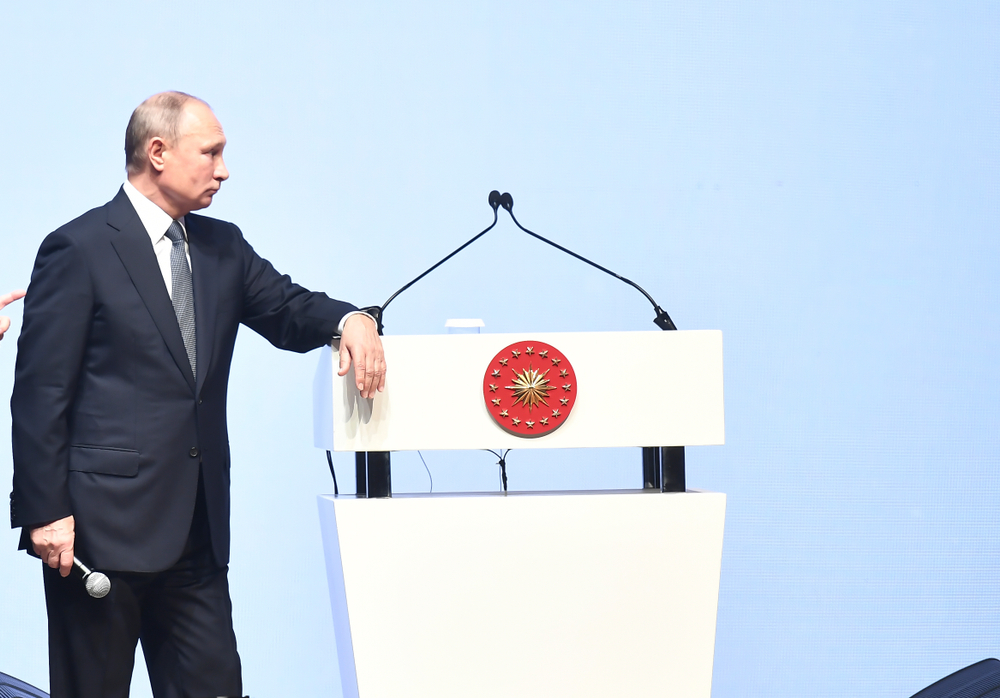Dialogue with Russia. Russia Needs to Reset Relations with the West
This report analyses Western-Russian relations and proposes a way forward for conducting dialogue with Russia. It offers an analysis of Russia’s relations with NATO and the EU, an overview of the bilateral relations of various Western countries with Russia, a glimpse of China’s role, and an assessment of the main interests and contentious issues in Western-Russian relations.

Moscow’s resurgent foreign policy and the undemocratic rule of President Vladimir Putin ended the relatively friendly relations that had been possible between Russia and the West in the 1990s. In the seven years since Russia annexed Crimea and started a war of attrition against Ukraine, the security situation in the transatlantic region has continuously deteriorated. The Kremlin has demonstrated hostility towards the West, crises and security issues have continued to multiply instead of being resolved, and the risk of outright conflict has come close to Cold War peaks. There is an obvious and urgent need to lower tensions, but Moscow prefers to demonstrate its readiness to escalate.
This report proposes that the West should strive for a relationship to be conducted on a purely pragmatic basis, rather than another ‘reset’ and recommends that decision-makers in Western countries should:
- abandon the idea of a possible ‘reset’ in relations with Russia. A new concept could be developed that would be aimed at creating a new basis in Western-Russian relations satisfying Western (security) interests and bringing Russia to the negotiating table;
- agree that that NATO and the EU should work out a common and comprehensive long-term approach to Russia;
- accept that there is no need to draw subjective or arbitrary ‘red lines’ that Russia would be tempted to cross. It is sufficient to constantly remind the Kremlin that its obligations under the UN Charter, the documents of the OSCE and other legal and political instruments are the ‘red lines’ that it should not cross;
- continue to strengthen its deterrence and defence in Europe, particularly on NATO’s eastern flank. NATO’s strategic communication (and that of individual member states) consisting of both political statements and military and defence actions should be better coordinated and calibrated;
- put forward a new ‘Normandy format’ with the participation of the EU, the US, Ukraine, and Russia. It is for the Western nations – not Moscow – to decide who represents the West;
- avoid further vacuums that would be filled by Russia. Western countries should continue to support strongly democratic governments and forces and bring relevant issues to the UN Security Council and other relevant bodies. The mistakes made in Syria and Libya should not be repeated;
- strive for as much solidarity as reality allows. The Kremlin will look for cracks in Western unity and exploit them. Sanctions are a key Western tool, in addition to defence and security measures, in dealing with Russia when Moscow flouts internationally agreed norms of behaviour;
- be more willing and able to engage China (as well as other BRICS countries like India and Brazil) in jointly helping to rebuild failed countries. The Kremlin will then more likely feel the need to improve relations with the West; and
- refuse proposals by Russia to ‘exchange guarantees’ of non-interference in each other’s internal affairs. ‘Non-interference pacts’ never mean what they say. Dialogue between the West and Russia will remain extremely difficult and barely fruitful as long as the Kremlin believes that solving any conflicts will weaken Moscow’s positions and that frequent and threatening demonstrations of military power are the only way that Moscow will be taken seriously.
> Read the full report on the ISCE website

Available in:
Regions and themes
ISBN / ISSN
Share
Related centers and programs
Discover our other research centers and programsFind out more
Discover all our analysesThe Caspian Sea as an Emerging Energy Hub : Potentials and Limitations
This report analyzes the prospects of the Caspian Sea region — and its key actors except for Russia and Iran — becoming an important energy hub serving the needs of the European Union (EU).
The European Union's Strategic Test in Georgia
The political crisis brewing in Georgia is of an existential nature for the country. What is at stake is Georgia's future as a democratic and sovereign European nation (EU).
Commanders of Putin's Long War: Purged, Reshuffled and Disgruntled
The trend of reshuffling the Russian top military command in the course of a fast-evolving and far from successful war has progressed unevenly both across the Armed Forces’ structures and in time. The rationale for and timing of the abrupt cadre decisions made by Commander-in-Chief Putin often defy logical explanation, and the rare official clarifications are no more informative than the usual information blackout.
Russian Military Manpower After Two and a Half Years of War in Ukraine
In addition to a military victory in Ukraine, the Russian leadership is planning to build up sizable troop formations for a possible conflict with NATO in the Baltic region and the Kola Peninsula. In particular, current plans aim for the military manpower to grow by about 350,000, reaching a total of 1.5 million soldiers and commanders. In the context of the current conflict in Ukraine, this cannot be accomplished without a new wave of mass mobilization.










